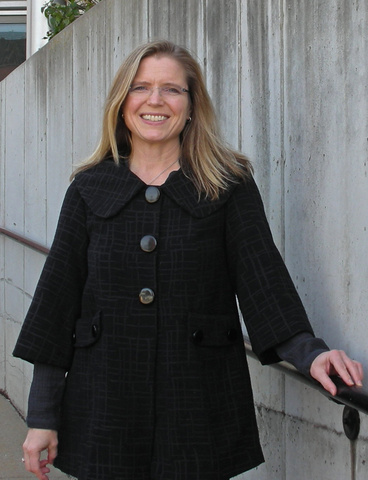 What is your hometown?
What is your hometown?

Born in Boston, raised in Madison, Wis.
How/when did you become interested in science and/or medicine?
Both my parents are scientists, so I was raised to have a sense of inquiry. As an undergraduate, I studied fluvial geomorphology and creative writing, and following university I completed an MFA in Poetry at the Program for Writers at Warren Wilson College in Swannanoa, North Carolina. I had an entry level faculty position in writing and was working on a project regarding how writers use metaphors, imagery, and language that is informed by scientific and medical advances, and how those ways of understanding change how we experience the world. Many of the writers who did this were also writing illness narratives, experiencing health challenges that altered their lived experiences. At a certain point, I decided that I didn’t want to write about this, I wanted to work within it. The practice of medicine is fundamentally a practice of humanities, informed by science.
When did you join the University of Iowa faculty?
I joined the faculty in 2011.
How or why did you choose to join the faculty at the University of Iowa?
I was already living in Iowa City, and had two children in the school system here. Having lived on the east coast of the United States and west coast of Canada, I knew there were things I was missing, but also knew what a great community Iowa City has. I was a single mother with ambitions for my career, and there are aspects of this community—such as walkability--that made it easier to balance those roles. I recognized that I was joining a faculty of talented, curious, and diverse people who understood work-life balance and in many cases chose to come here and stay here because one can have the best of both worlds—living a reasonable day-to-day existence while working alongside world-class clinicians, educators, and researchers.
Is there a teacher or mentor who helped shape your career?
Gerald Jogerst, Professor of Family Medicine—Dr. Jogerst instilled in me the importance of considering people’s ability to function, to perform their necessary activities and engage in their environment, as an essential component of health and quality of life.
How do you see your faculty role impacting medicine and/or science?
What I learn through my research work informs how I teach and practice medicine. Early in my career, I faced a clinical conundrum. When I went looking for studies or guidelines to resolve this, I found a big gap. My line of inquiry since then is a continuation of the need to fill that gap, around the clinically relevant questions of pain treatment and functional improvement in hospitalized patients with acute pain, chronic pain, or both. This question, which started for me at a patient’s bedside, led to a collaboration resulting in the 2018 Consensus Statement to Address Opioid Prescribing in the Inpatient Setting published by the Journal of Hospital Medicine. In general, one of the biggest advances I hope to see and be a part of is determining how to apply disease specific findings to complex patients with multi-comorbidities, in a way that leads to the best outcomes for each individual, and balances this outcome with the burden of care management placed on the patient. In a sense, this is a question that shifts the focus from precision medicine to precision medical-care delivery. How do we tailor what we do know with what works for a disease in general, so it works for the specific person with that disease?
What is the biggest change you've experienced in your field since you were a student?
The culture of political polarization that has grown nationally has changed the tenor of training and practice. Because of our increasing realization that so much of health is socially determined, there is a greater sense that advocacy should be part of our professional roles. However, this is coupled with at times a greater challenge of advocating in an increasingly polarized environment.
What one piece of advice would you give to today's students?
Think critically. So much of medical school is providing the right answers, but what you really need to do is know how to ask questions. From there, keep asking better questions, and then learn what process you need to employ in order to ask and answer questions that haven’t been asked, but need to be asked and answered. Medicine and health care delivery are continually changing, and physicians need to be positioned to influence and guide this change.
In what ways are you engaged in professional activities outside the University?
I do much of my work with our affiliated Veterans Administration Healthcare System in Iowa City, where I direct the VA Quality Scholars Fellowship’s Iowa City site, training physicians, nurses, and other health care professionals in research, improvement, implementation, and leadership. My research focuses on inpatient pain management in the time of epidemic opioid use, and on improving the therapeutic value of medical hospitalization through reducing iatrogenic injury and emphasizing mobility. I also serve as faculty with the annual SQUIRE conferences on writing and publishing in quality improvement.
What are some of your outside (personal) interests?
My son and daughter, family, traveling, reading, cross country skiing, cycling.